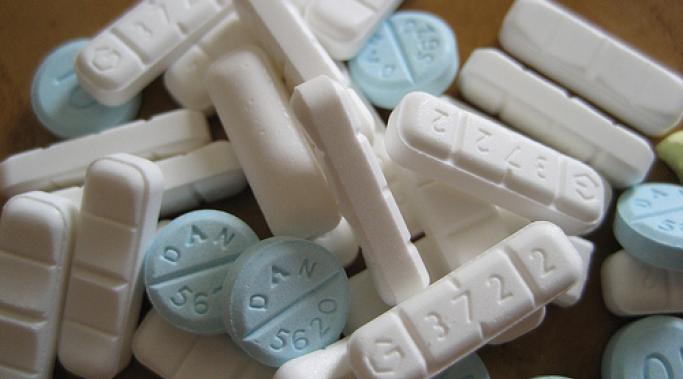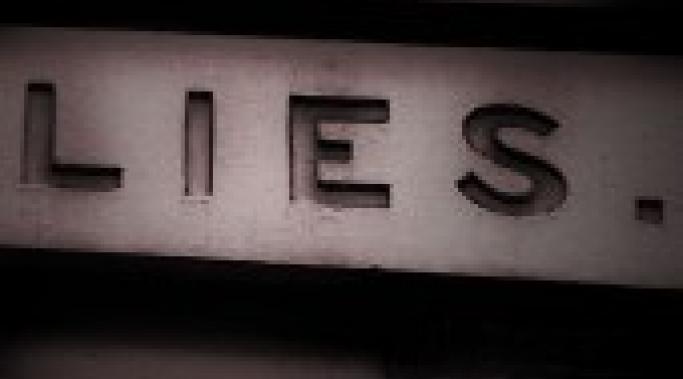Blogs
There's talk of privatizing the state hospital system. That strikes me as a bad idea. We already have enough mental health services that run with a skeleton staff, minimal oversight, and an emphasis on the bottom line.
"The meds don't work!" I hear it a lot. From rational people. It's shorthand, a way to tell me that psychiatry has failed them. Unfortunately it's also used as a vantage point from which to argue that psychiatric medications are universal bunkum. I find this insulting; It implies those taking medication for mental health issues are at least a little clueless, prone to hypochondria. One step barely removed from calling the lot of us hysterics. So much for a century of scientific research and advocacy.
Amy, a 17 year old young woman, ran away from her parents' home months ago. From one perspective, the situation could be explained as a defiant teen who doesn't want to obey her parents' rules. From Amy's perspective, the explanation differs. She understands that she broke a rule (or three!) and expected to be disciplined for that.
Amy did not expect to find her disobedience tied to be tied to her parents' marital woes. She didn't expect for a private conversation with her mother to be shared with her father. She did not expect to be blamed for her mother's choice to confide feelings about Amy's father's repeated adultery (Amy suggested Mom leave him). Also, like many other victims of abuse, she did not expect the insults and aggressive anger as her parents worked through their emotions toward her via verbal and mental abuse.
A 2008 Harris Interactive study found that about 0.5 percent of Americans are vegan and 3.2 percent of Americans are vegetarians. That equals 1 million and 7.3 million respectively.
That's a pretty low number. Why then does it seem that I know so many people with eating disorders who either are vegan, vegetarian, or practice some other type of eating different from the normal population?
Last night I participated in the first tweetup for the Society of Participatory Medicine. In their words,
Participatory Medicine is a cooperative model of health care that encourages and expects active involvement by all connected parties (patients, caregivers, healthcare professionals, etc.) as integral to the full continuum of care.
Not surprisingly, this is something with which I firmly agree. I believe in patients as active participants in their own healthcare. I say it all the time - the doctors aren't the ones taking the pills, you are.
The issue with pushing for patient "participation" is not everyone is capable of wholly participating in their own healthcare. Sick people are busy being sick. They don't have time to read research papers.
While some in the tweetup agreed, two notable exceptions occurred:
""too sick"? -why Patient support groups are key took 4 building the 'plumbing'."
"One can't be busy getting well & busy being sick at the same time. The patient has to choose."
Sounds like blaming the patient to me.
I had intended to spout on a completely different topic today, but I'll be honest--this insurance business has, to coin a phrase, my dander up. Judging from the majority of comments I've received, I'm not alone.
In this video, I reflect upon society's obsession with looks and how this can be dangerous for both young girls and women with eating disorders. Watch here:
The lies our addiction feeds us can be dangerous, triggering, and something we need to be vigilant of in sobriety. When we get sober it is important to separate the voice of our addiction from our true, authentic voice.
No one can take away your education. I tell that to the cadets where I work all of the time because it is true: I know from my own hard-won education, an ICBS (I Call Bulls*&!) degree, earned via 18 years of mental, emotional and verbal abuse, featuring a well-designed syllabus acted out by my controlling, manipulating, abusive ex. That man was an excellent teacher, but I didn't truly appreciate his lessons until the last years of his course (a.k.a., our marriage).
It was a long course. Four times, out of sheer frustration I'm sure, he attempted to physically knock the stupid out of me, but it took that final laying on of hands to make me see the light.
I graduated from that abusive experience with the ability to sense abusive bulls*&! from a mile away. Thank you, Ex-Husband, for the education.
I've discussed how I like to use the word "crazy" and don't find it derogatory. Us crazies, we have to stick together, I might say. I've also said that people can use any word to hurt you. Don't tell me you're a secretary.
But some people use a mental illness diagnosis as a weapon. Some people insult and abuse with the facts of illness and treatment.







